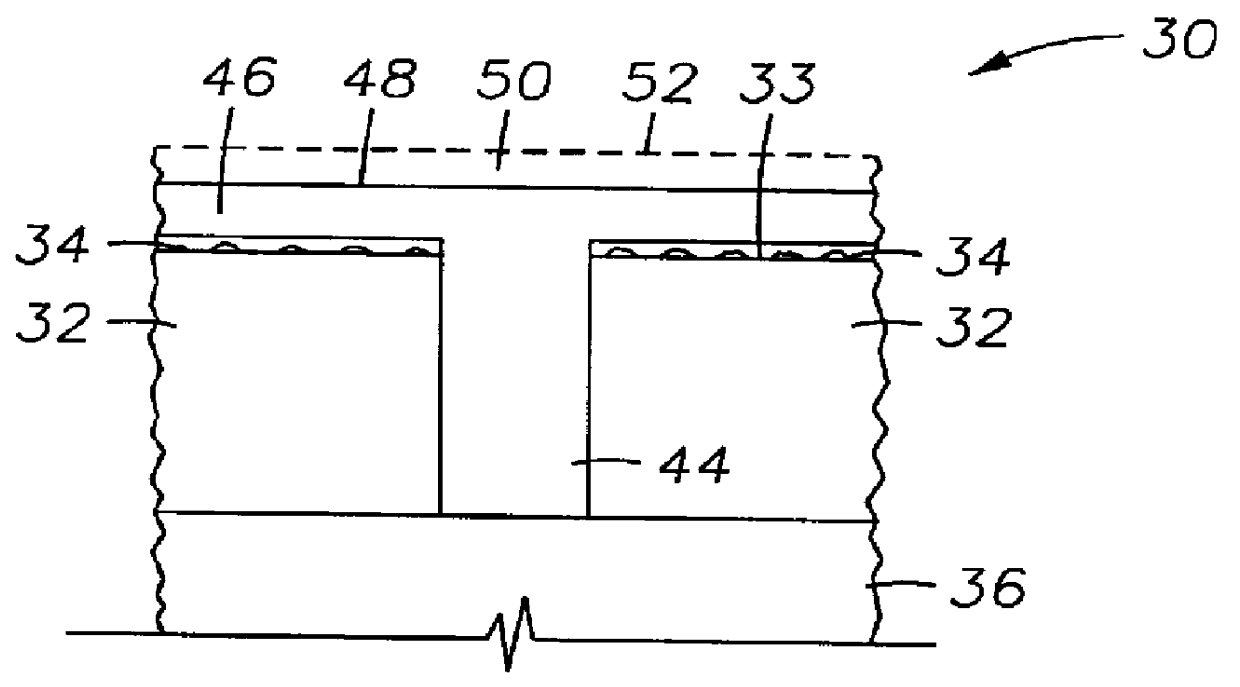Blanket-selective chemical vapor deposition using an ultra-thin nucleation layer
a chemical vapor deposition and ultra-thin technology, applied in chemical vapor deposition coating, conveyor parts, resistive material coating, etc., can solve the problems of void in the filled aperture, width of the aperture, and association with blanket cvd process
- Summary
- Abstract
- Description
- Claims
- Application Information
AI Technical Summary
Problems solved by technology
Method used
Image
Examples
Embodiment Construction
The present invention provides a method and apparatus for obtaining film layers with highly oriented crystal structures having improved reflectivity, wherein the ultimate layer is formed by either CVD or PVD techniques. The present invention also provides a process and apparatus for the selective deposition of material within small geometries, such as high aspect ratio apertures, which will selectively form void-free structures such as interconnects in the apertures while also forming a matching film layer on the field. In one aspect of the invention, this is provided by depositing a small quantity of refractory material, preferably TiN, on the surface of the substrate and then forming a conducting film layer thereon. In another aspect of the invention, nucleation sites are formed on the field by depositing the small quantity of refractory material on the field which, when exposed to the chemical vapor, initiate film growth which provides a film layer thereon which does not bridge t...
PUM
| Property | Measurement | Unit |
|---|---|---|
| Angle | aaaaa | aaaaa |
| Angle | aaaaa | aaaaa |
| Angle | aaaaa | aaaaa |
Abstract
Description
Claims
Application Information
 Login to View More
Login to View More - R&D
- Intellectual Property
- Life Sciences
- Materials
- Tech Scout
- Unparalleled Data Quality
- Higher Quality Content
- 60% Fewer Hallucinations
Browse by: Latest US Patents, China's latest patents, Technical Efficacy Thesaurus, Application Domain, Technology Topic, Popular Technical Reports.
© 2025 PatSnap. All rights reserved.Legal|Privacy policy|Modern Slavery Act Transparency Statement|Sitemap|About US| Contact US: help@patsnap.com



